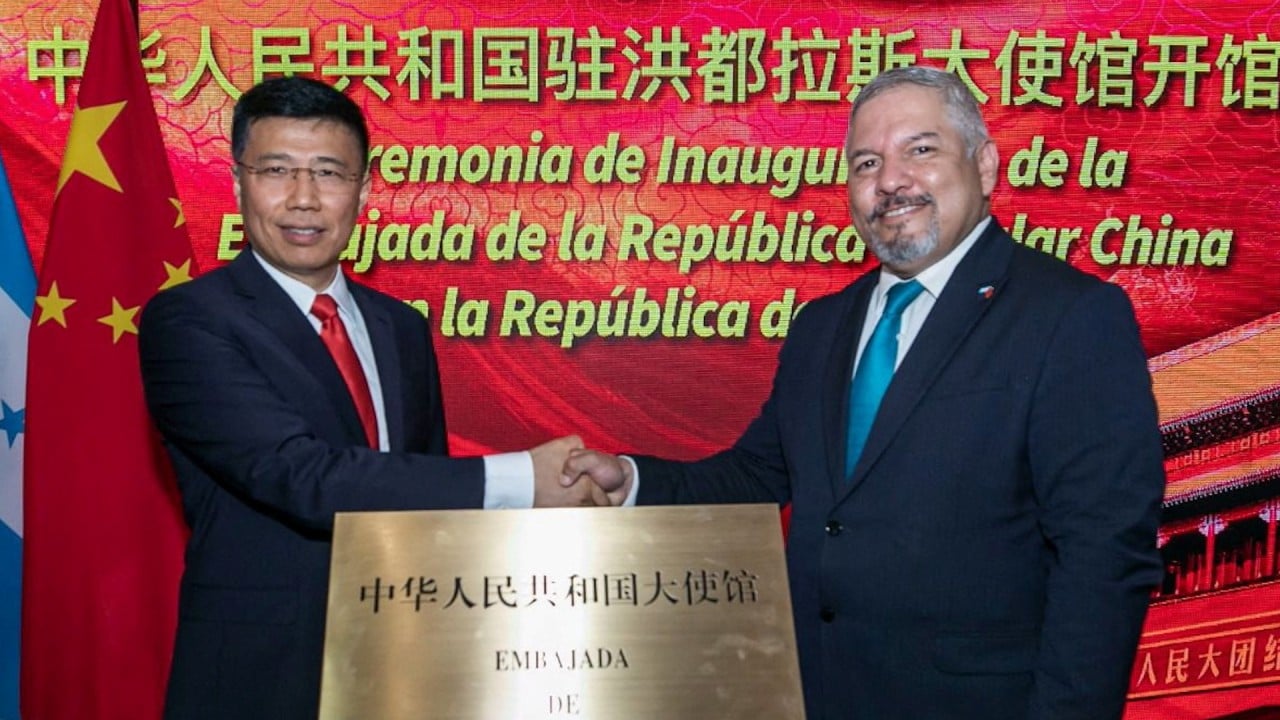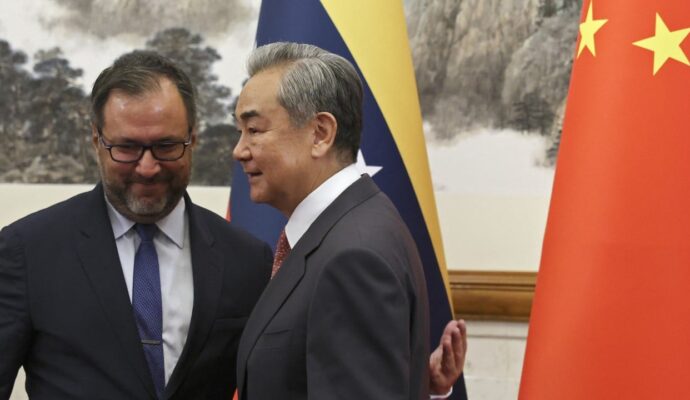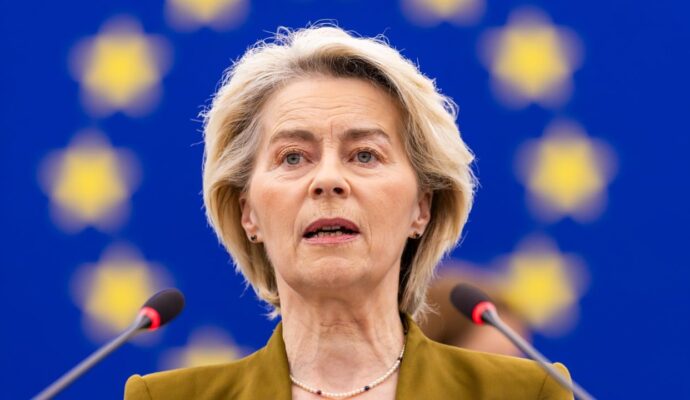Xi stressed that the “one-China principle” would be the prerequisite and foundation for bilateral ties and said he believed Honduras could “fully implement” the principle, according to Chinese state broadcaster CCTV.
Castro showed “high appreciation” for China’s Belt and Road Initiative and other global projects and pledged to take part actively, according to CCTV.
“We believe that developing a good relationship with China could allow us to gain better and more opportunities of development … and are willing to actively promote the relations between China and the Community of Latin American and Caribbean States,” she said.
The two leaders witnessed the signing of 17 bilateral agreements in areas including trade, belt and road project construction, agriculture, science and technology, culture and education, according to a tweet from Chinese foreign ministry spokeswoman Hua Chunying.
Before meeting Xi, Castro visited the Monument to the People’s Heroes in Tiananmen Square to pay tribute to those who died in the struggle to establish the People’s Republic of China – a symbolic gesture of patriotism in the country.
Castro, who was dressed in a red suit, was welcomed by the Chinese leader and senior officials including top diplomat Wang Yi, as well as People’s Liberation Army squads, a military band and a group of children waving flags and flowers.
Castro, accompanied by a high-level delegation, arrived in Beijing on Saturday evening after visiting Shanghai, where she met Chen Jining, the financial hub’s Communist Party chief. Earlier that day she met Dilma Rousseff, president of the BRICS-led New Development Bank, and submitted an application to join the bank.
BRICS is an association consisting of five large emerging economies: Brazil, Russia, India, China and South Africa.
The Honduran delegation also expressed their commitment to economic cooperation with China and met Chinese business leaders in trade, engineering, telecommunications and other industries in Beijing, according to local media.
The initial stages of trade would focus on exports of agricultural products to China, such as coffee beans, white shrimp and melons, then expand to areas such as investment, energy, telecommunications and infrastructure, Fredis Cerrato, the Honduran minister of economic development, told Chinese tabloid Global Times.



